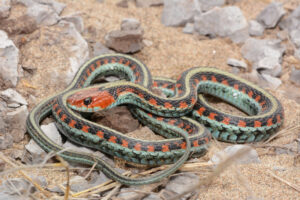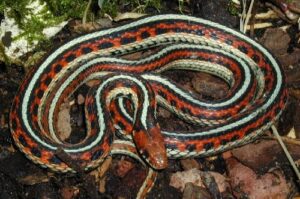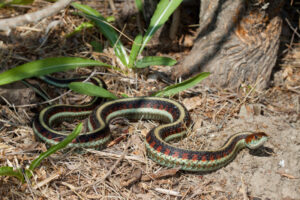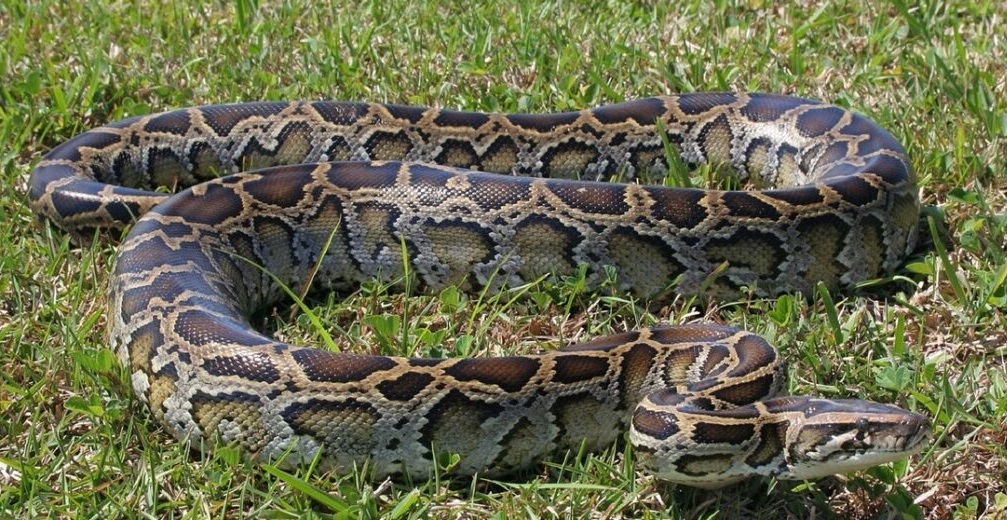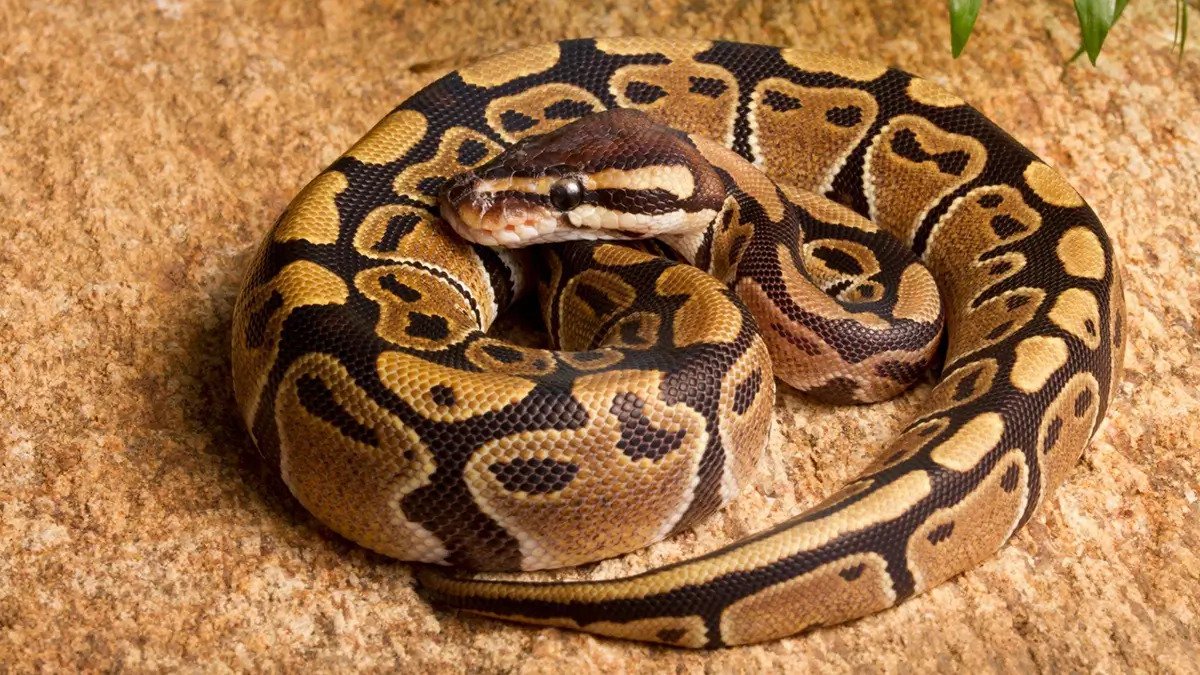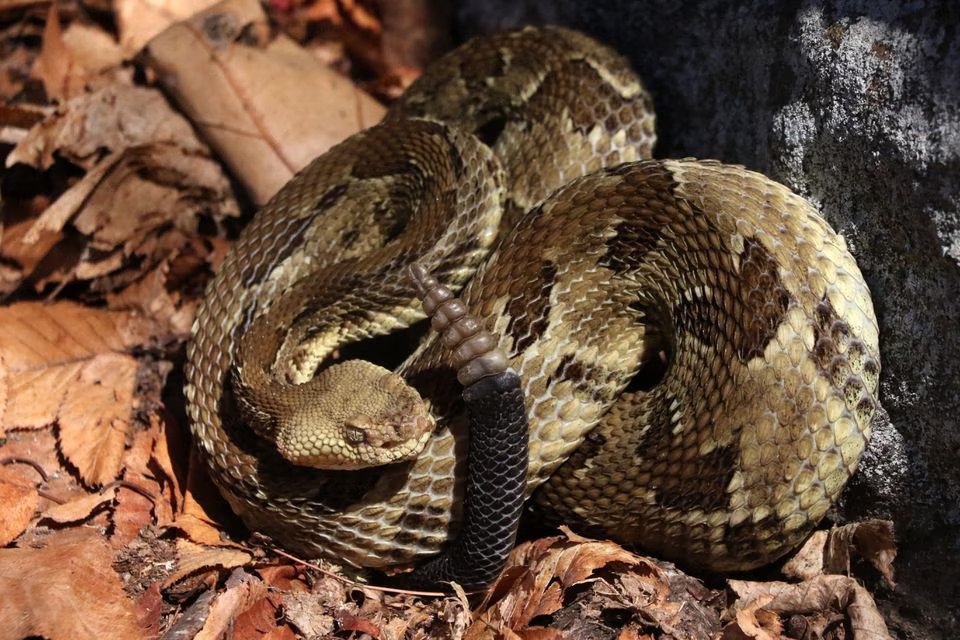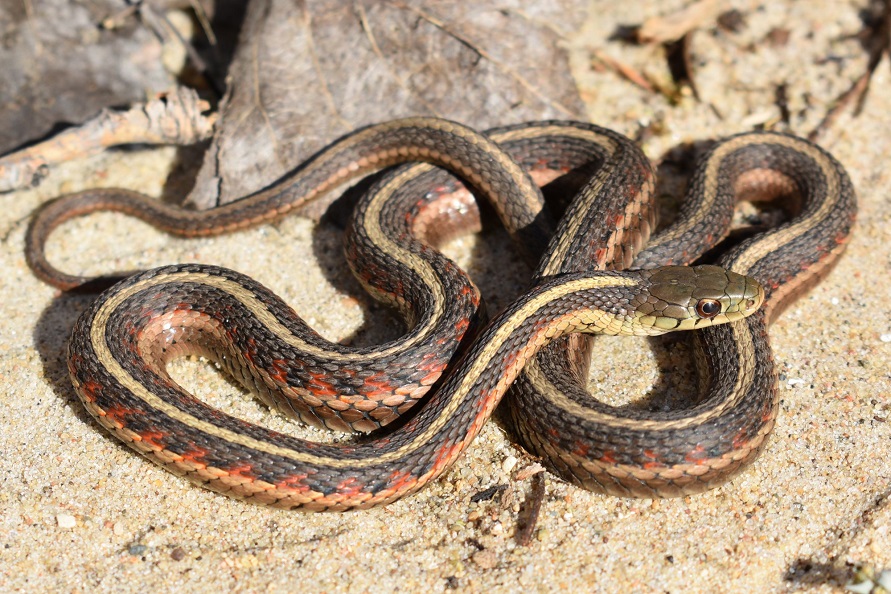California Red-sided Garter Snake (Thamnophis sirtalis infernalis)
Updated on
25/04/2024The California red-sided garter snake is a slender, natricine subspecies of the common garter snake. The primarily diurnal, medium-sized garter snake is endemic to North America and is a good swimmer. The snake is beautiful owing to its unique and captivating scale patterns.
Scientific Classifications
- Suborder:Serpentes
- Family:Colubridae
- Genus:Thamnophis
- Species:T. sirtalis
- Subspecies:T. s. infernalis
Conservation Status
Description
Size
On average, the adults have a total length of about 22 in (55 cm), with the maximum recorded total length as 39 in (100 cm). The males are smaller and thinner than the females.
Color and Appearance
The California red-sided garter snake has a basic pattern of 3 stripes, including blue and yellow ones, on a primarily red body. The remaining is a black stripe formed by a row of black blotches or spots. Depending on the individual, the red pigmentation can be more or less distinct, but it forms spots and blotches across the body and on the head. The specimens with less prominent red color appear black with red patterns. The underside is bluish-gray and can sometimes have dark markings.
The orange or red head is barely wider than the neck and can vary greatly in looks based on its geographical location. The species has keeled dorsal scales, and the eyes are larger than other species of garter snakes.
Are They Dangerous to Humans
When threatened, it often escapes into the water. On being captured, the snake releases a foul-smelling musk and cloacal contents, and strikes. It has mild venom that can be deadly to its small prey but is considered harmless to most humans.
California Red-sided Garter Snakes at a Glance
Distribution
This garter snake can be found throughout California, as suggested by its common name. It ranges from coastal Humboldt County to coastal Monterey County. It is absent from Monterey to Santa Barbara but present between Santa Barbara and San Diego County.
Habitat
It is mainly found in coastal dunes and marshes. The serpent is typically associated with permanent or near-permanent water bodies like shallow waters, marshlands, and dunes. Freshwater coastal marshes and the sag ponds in the San Andreas Fault rift zone are its primary habitat. It temporarily occurs in grasslands and some woodland.
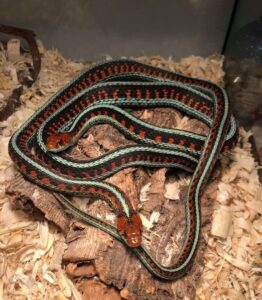
Lifespan
The California red-sided garter snake lives for 2-4 years in the wild. In captivity, it can live up to 20 years.
Predators
It falls prey to crayfish, hawks, raccoons, crows, and other snakes like the California kingsnake and coral snakes.
Diet
They consume various prey, including newts and frogs, their larvae, birds and their eggs, fish, reptiles, leeches, slugs, earthworms, and small mammals.
Reproduction
Viviparous (gives birth to live young)
The colubrid mates in late winter to early spring and gives birth from mid-summer to early fall. The young are typically 5-8 in (12-20 cm) in length. The brood sizes vary but typically range from 8 to 20. The juveniles have faint colors that become increasingly brighter as they grow and shed. Most are born yellow and turn successively bluer with maturity.
Care Sheet
Their lean, svelte shape, unique coloration, mild manners, and low upkeep make them a favorite pet.
Size of the Enclosure: An adult can be housed in a 20-gallon terrarium.
Temperature: A temperature of 86°F-95°F should be maintained in the tank.
Humidity: They need an average humidity level of 30-60%. A water dish large enough for the pet to bathe in should be included in the cage.
Substrate: The best substrate for the snake is cypress mulch.
Feeding: The pets can be kept primarily on a diet of frozen, thawed rodents in a variety of sizes.
Source
ourbreathingplanet.com, fbcdn.net, polyland.calpoly.edu, ourbreathingplanet.com

